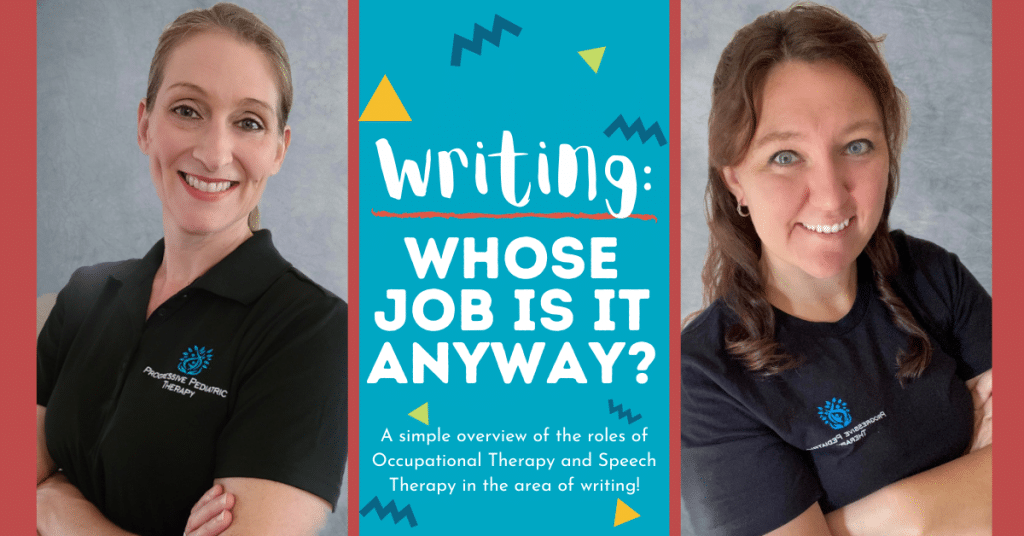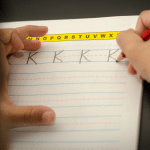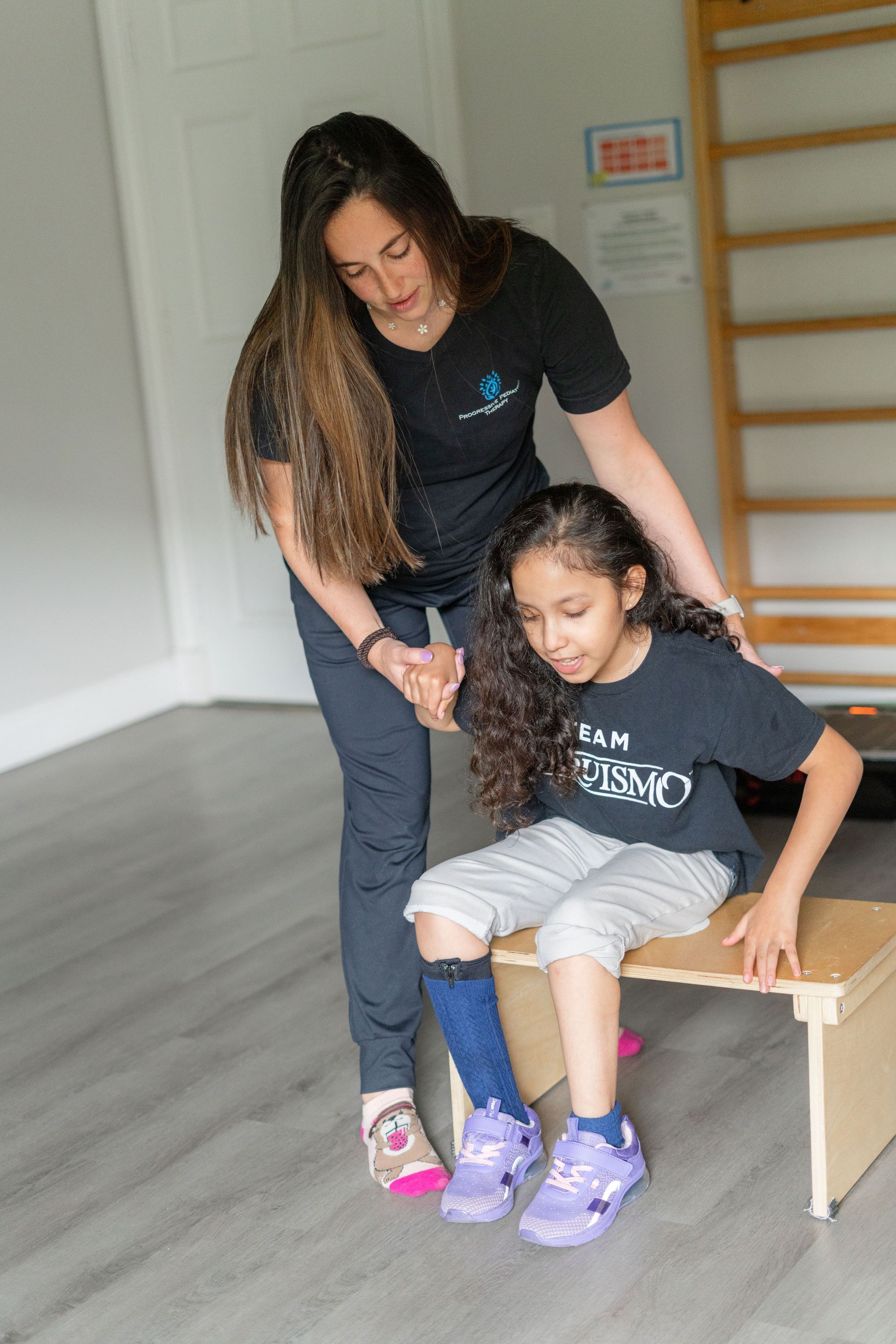Your Clinic
SET A LOCATION
Your Clinic
SET A LOCATION

Our kids learn the prerequisites needed to write as early as when they start picking up a crayon and coloring! So when it comes to writing difficulties, do you consult an occupational therapist? Or do you consult a speech therapist? Since writing is a multisensory approach to expressing ourselves, writing is also one of the many areas that speech and occupational therapy overlap!

Speech therapy deals with the expression of written language . Just like in spoken language, we look at the phonology, morphology, syntax, semantics, and pragmatics of written language. When your child is writing, are they sounding out the word to spell? Are they writing an “s” at the end of plurals? Can they create a sentence or two to describe a picture? Basically, we are looking at how a child puts their thoughts into words on paper.

Occupational therapy addresses the mechanical actions it takes to write . We look at coordinating the eyes, arms, hands, pencil grip, letter formation, strength, and body posture when a child is writing. When your child is writing, is their starting point at the top of the space? Are they holding a pencil correctly to write? Are their letters varying in size all over the page? We are looking at how a child’s handwriting is affected by their fine motor, visual perceptual, and visual motor skills.

Ah, the fun stage of preschool! We are in agreement that, developmentally speaking, they may not be ready to write yet! You will find that occupational and speech therapy won’t necessarily address writing until school-age. However, we are going to work on some fundamental, foundational skills they will need to prepare them for writing!

By kindergarten, both speech and occupational therapy can help with writing. We both target copying words , writing uppercase letters , writing on a single baseline with good spacing , and writing their name . Here is how we are different…
If you would like a deeper understanding on how occupational therapy and speech therapy work on writing or for older children in their different therapeutic approaches, check out these blogs by Regina and Tiffany:
“You don’t write because you want to say something, you write because you have something to say.” – F. Scott Fitzgeral d
The post Writing: Whose Job Is It Anyway? appeared first on PPT4Kids.









We empower children, families, and the community to learn, grow, and celebrate every child's unique abilities.
Quick Links
Contact Details
Phone: 561-376-2573 | 561-918-0190
Fax: 561-218-4939
VIP Concierge: 561-717-1764
Clinic Locations
All Rights Reserved | Progressive Pediatric Therapy, Inc. | Privacy Policy | Terms of Service
Site by Spearlance